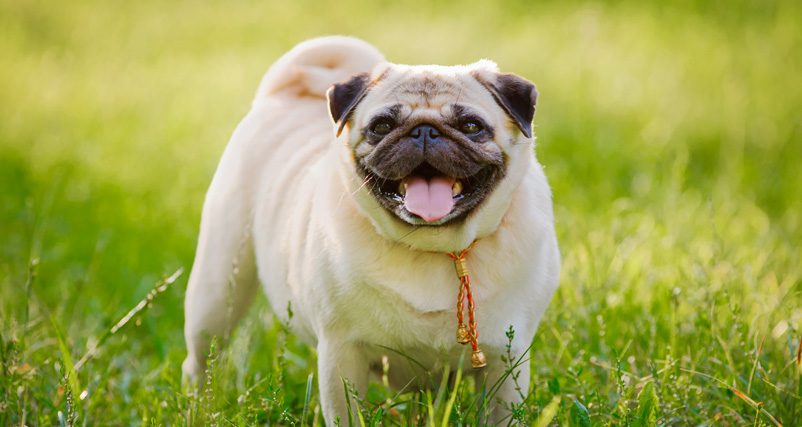The best part about having a fur baby is all of the meaningful memories we create with them — whether that’s cute
nightly cuddles, fun hiking adventures, or heartwarming moments with our families. This is part of why we take such
good care of them! When our pets live long, healthy lives, we get to create more memorable moments with them.
One of the growing pet health concerns in our nation right now is obesity. Pet obesity is a widespread issue that’s
affecting fur babies everywhere! By understanding a bit more about pet obesity, its effects on health and how to
prevent it, we can help our pets lead healthier lives — and, therefore, make more sweet memories with them.
What Is Pet Obesity?
Just like in “hoomans,” obesity is defined as “excess body fat.” When pets weigh 10 to 20% more than their ideal
body weight, they’re considered overweight. When they weigh 20% or more than their ideal body weight, they’re
considered obese.
Believe it or not, 59% of American dogs and 61% of cats are overweight or obese. That’s more than half! This is a
widespread issue for pet health, but despite these alarming statistics, only 39% of dog parents believe their pet is
overweight.
Remember: Cats and dogs are smaller than adult “hoomans”, so an extra pound — or three — is often significant!
So, How Do I Know If My Pet Is Overweight?
There are several methods that can determine whether a pet is overweight, but at pawTree, we recommend relying on
your trusted veterinarian. A vet and their team can 1) complete an evaluation to determine whether your fur baby is
overweight, and 2) provide an ideal body weight for optimal health.
The Body Condition Score (BCS) can also help you determine if your pet is overweight.
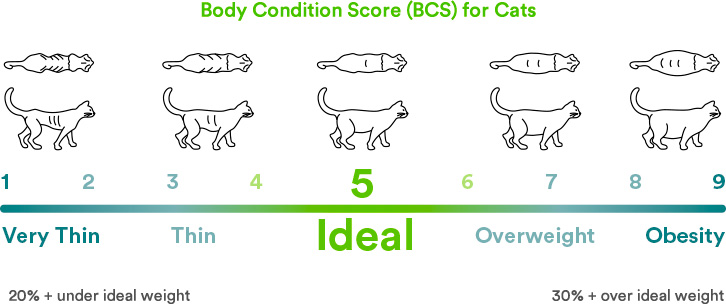
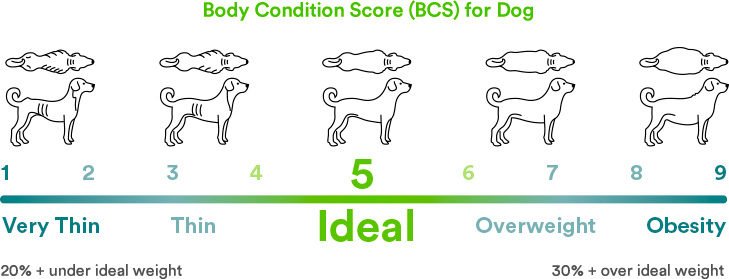
Does It Matter If My Pet Is Obese?

Yes, absolutely! A pet’s health is directly correlated to their weight. Here are a few facts about pet obesity to consider:
Fit Pets Live Longer
Dogs that maintain a healthy weight live longer than their overweight counterparts. Obesity alone can shorten a dog’s life by up to 2.5 years!
Obese Pets Are More Likely To Experience Other Health Challenges
A fit pet often gets more time to create memories with their parents; even five pounds above your pet’s ideal weight can increase their risk of developing serious health challenges. These include, but are not limited to, arthritis, joint issues, Type 2 diabetes, respiratory and heart issues, and many forms of cancer.
Losing Weight Improves Mobility
Overweight pets can experience mobility issues. In good news, losing just 6% of overall body weight can noticeably improve your fur baby’s mobility and overall vitality!

5 Ways To Reduce Your Pet’s Weight
There are many factors that can contribute to a pet being overweight, but ultimately what matters is getting your fur baby to a weight they can thrive at. Here are 5 tips to help your fur baby lose weight healthily.
1. Partner With Your Veterinarian
First and foremost, trust your veterinarian! Take your pet to the vet, and they’ll assist you in developing a diet and exercise plan that takes your fur baby’s needs into account.
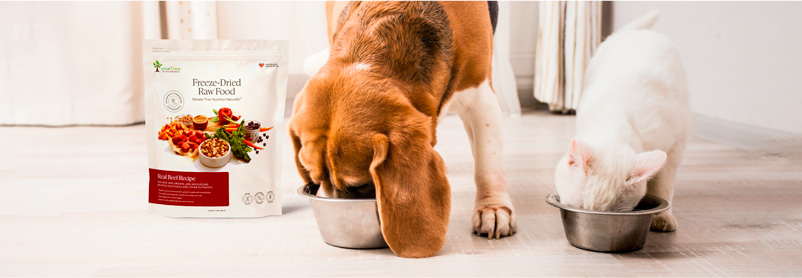
2. Feed Nutritionally-Dense Food
When it comes to your pet’s health, it’s of utmost importance to choose high-quality, nutritionally-dense food. Many
pet foods are full of fillers and empty calories, which make it tough for your fur baby to get the nutrients they
need from their meals in a reasonable amount of calories.
Whether you choose freeze-dried raw food, kibble or wet food, look for highly-digestible,
nutrient-rich food that is free of artificial flavors, preservatives, and added sweeteners — like pawTree’s.
3. Follow Feeding Guidelines
No matter what food you choose, be sure to follow the feeding guidelines on the product or refer to your veterinarian’s advice! If you’re looking for customized feedback on your fur baby’s diet, complete a Pet Profile for healthy recommendations.

4. Exercise Daily
Regular exercise is one of the most important factors in your fur baby’s overall well-being — regardless of their current weight. Whether you decide to take walks with your pet, play with them more often or go on hikes, increasing your pet’s day-to-day movement will make a big impact on their health.
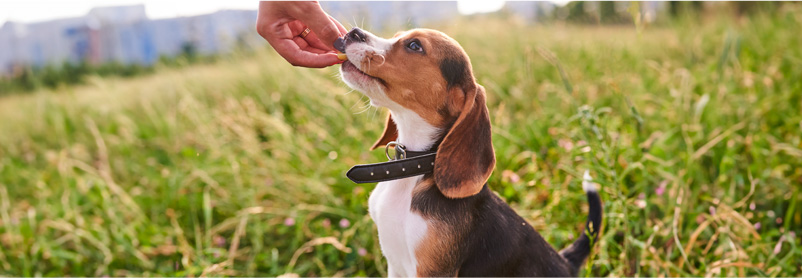
5. Give Out Treats Mindfully
It can be easy to give our pets endless amounts of treats—we love them so much! However, treats have calories that
can add up quickly. Limit the number of treats to a recommended serving and look for filler-free treat options. Our
Freeze-Dried Chicken, Apples, And Kale pawTreats®
are a great grain-free, all-natural, healthy, real-food option to spoil your fur baby with. By giving treats
mindfully, you can reduce unnecessary calorie consumption and aid in weight management.
At the end of the day, pet parents just want their fur babies to thrive! By being aware of the pet obesity epidemic
and managing our pet’s weight, we promote the health and longevity of our furry companions — and get to create more
lasting memories together.
You Might Also Like

One-Month Pet Wellness Plan to Elevate Their Health Read More |
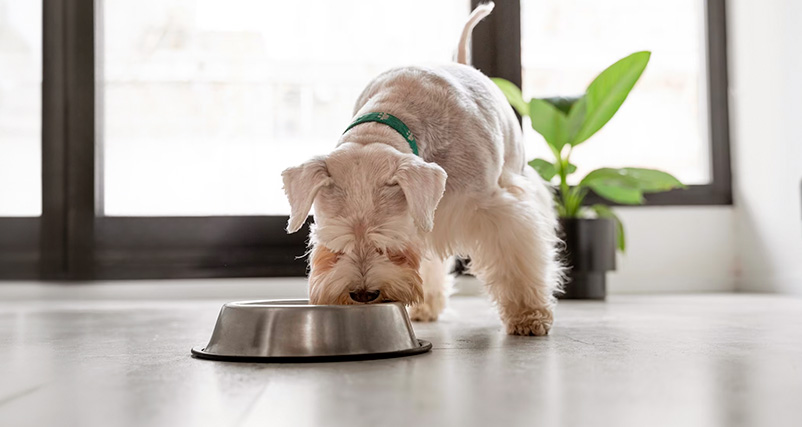
Unraveling the Grain-Free vs. Healthy Grains Dilemma: A Guide for Pet Owners Read More |

Is My Dog’s Poop Normal? What to Look for in Your Pup’s Stool Read More |

One-Month Pet Wellness Plan to Elevate Their Health
Unraveling the Grain-Free vs. Healthy Grains Dilemma: A Guide for Pet Owners
Is My Dog’s Poop Normal? What to Look for in Your Pup’s Stool

